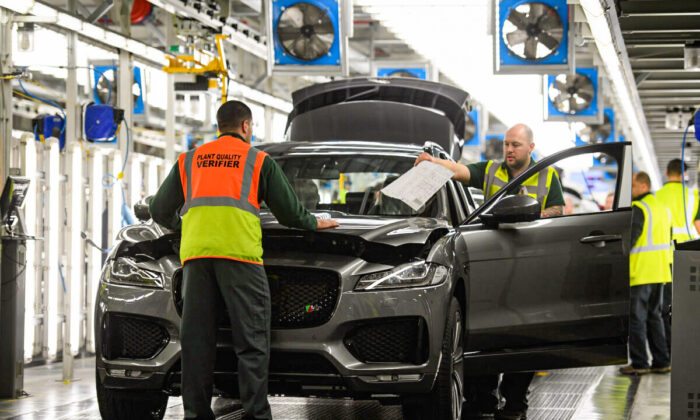British businesses are optimistic about the future of manufacturing output in the upcoming year, despite disruptions in global supply chains.
In May, the UK manufacturing sector experienced growth in production and new business at the fastest rates since early 2022, as revealed by a survey conducted by the Chartered Institute of Procurement and Supply (CIPS) and S&P Global.
The survey reported a Manufacturing Purchasing Managers Index (PMI) of 51.2 for May, indicating overall expansion in the manufacturing economy.
Rob Dobson, director at S&P Global Market Intelligence, stated, “May witnessed a strong resurgence in activity within the UK manufacturing sector, with production and new business levels increasing at the quickest rates since early 2022.”
All three product categories covered in the survey—consumer, intermediate, and investment goods—experienced simultaneous expansions for the first time in over two years. This growth was seen across all company sizes, from small to large.
While the domestic market played a significant role in this upturn, there were also indications of improving overseas demand, moving closer to stabilization, according to Mr. Dobson.
Although new business with British manufacturers saw an increase for the second time in three months, exports orders continued to decline for the 28th consecutive month. The survey noted reduced new work from the US, EU, and Middle East, with the weakest contraction since March 2022.
Despite this, business optimism reached a 27-month high, with 63% of UK manufacturers anticipating higher production volumes in the coming year.
Geopolitical tensions, such as conflicts in Ukraine and the Red Sea crisis, have impacted global supply chains, leading to concerns among procurement leaders. The survey highlighted worries about political and economic uncertainties both domestically and internationally.
Inflationary pressures were also observed, with input buying increasing in May after 22 months of reduced purchasing activity. Input costs rose for the fifth consecutive month, albeit less sharply than in April.
Output prices increased in the consumer and intermediate goods sectors but eased for investment goods producers. This mixed picture of price pressures at manufacturers was noted in the survey data.
Despite the positive growth in production and new businesses, high prices across the manufacturing sector might prompt the Bank of England (BoE) to delay interest rate cuts until inflation eases further. The BoE aims to see a stable decline in inflation before considering reducing the current historically high interest rate of 5.25%.
Last year, Prime Minister Rishi Sunak pledged to position the UK as a global manufacturing leader, with significant funding allocated to industries like automotive, aerospace, clean energy, and life sciences.
This article includes contributions from PA Media.
Please rephrase this sentence.
Source link





